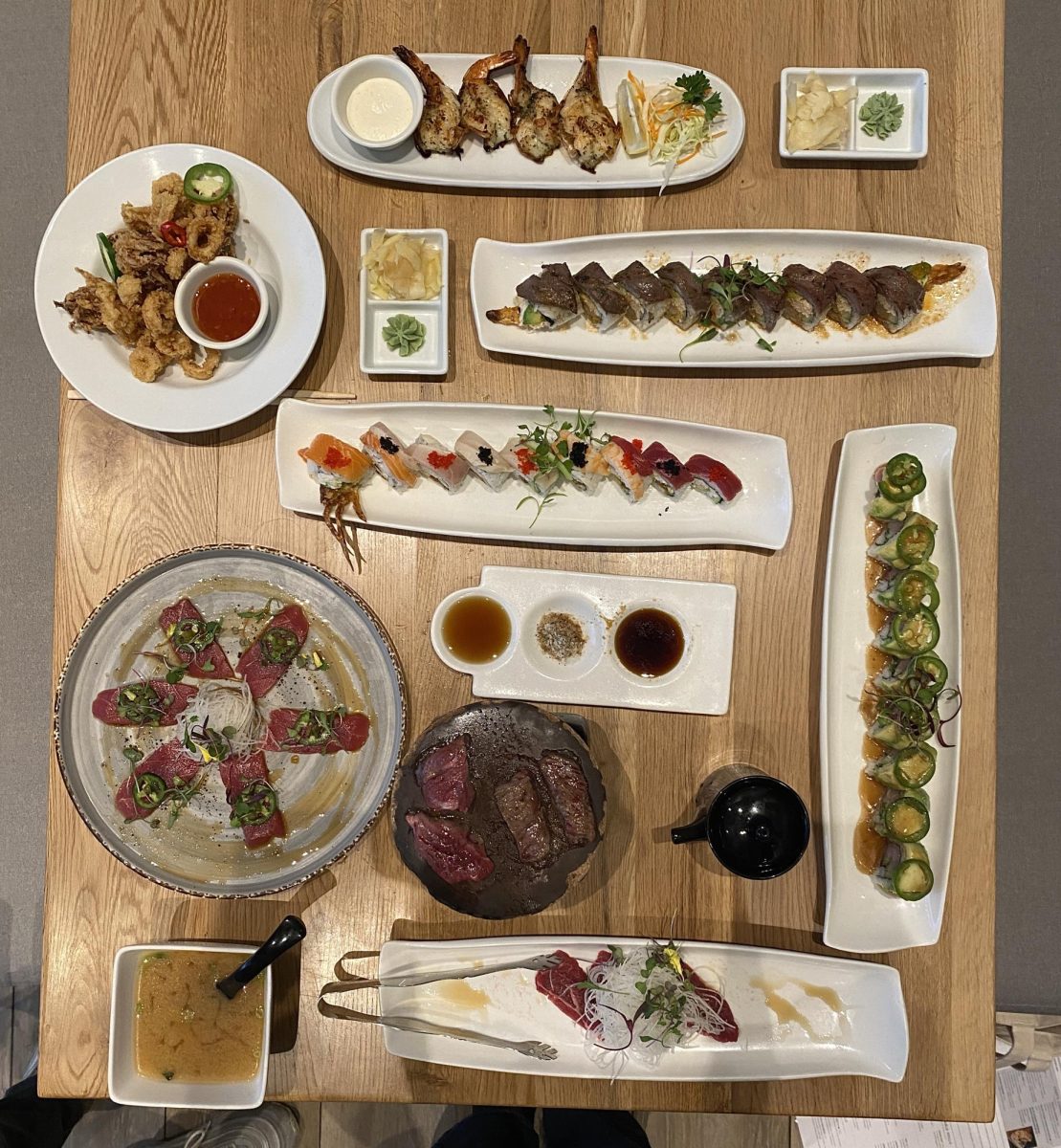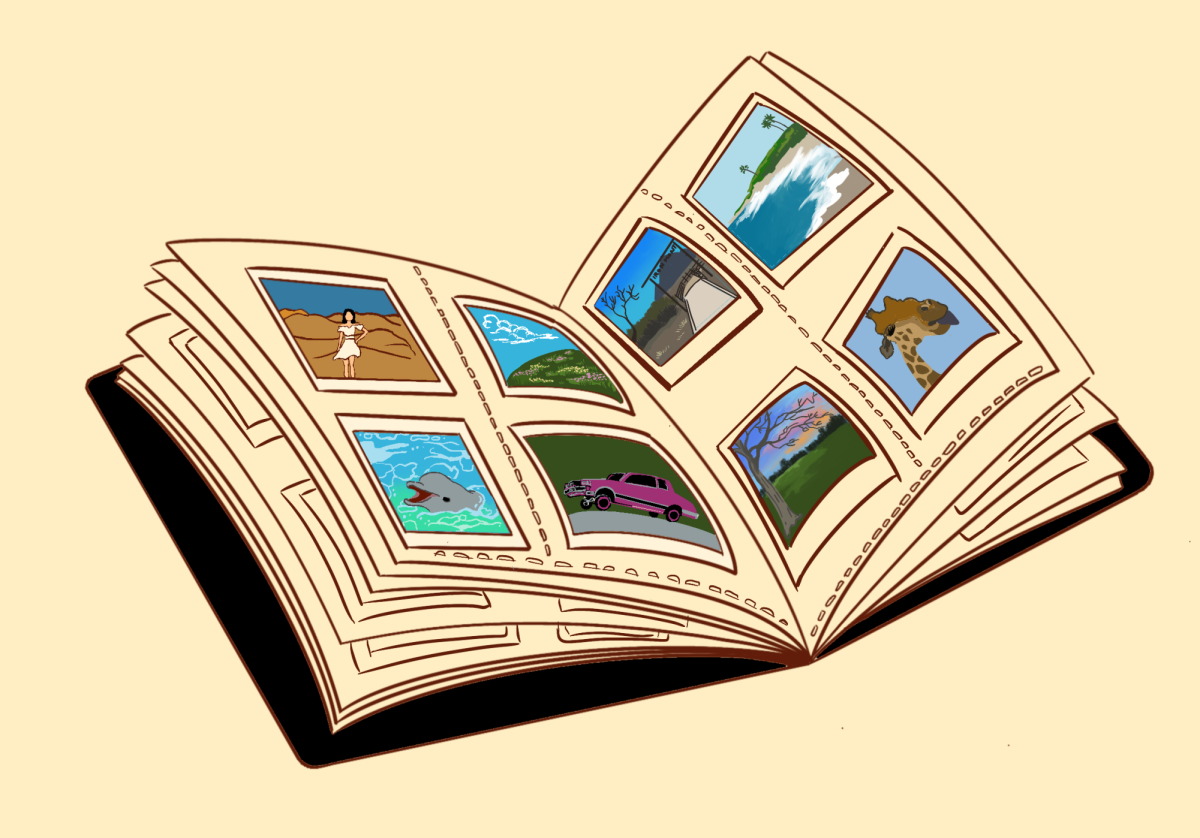The first thing I did when I got home was check if I had a concussion.
Luckily, I had not. I had just gone to a show at the North Park Observatory, a gilded, vintage venue leftover from a bygone era of the 1920s. The Art Deco interior was painted with swooping arches, dazzling flourishes of color, and grand pillars of the past. If you squint hard enough, you could almost see an orchestra playing from — a pit?
Blink, motherf—–. A mosh pit.
The band playing that night was julie, a shoegaze band from Orange County. But to classify them solely as “shoegaze” is too simplistic a description for a sound that defies easy categorization. Like most music from the suburbs, their sound is hard, aggressive, and wholly original. But if I went on any further about their music itself, I would be putting another writer out of a job. So, go listen for yourself.
Instead, I’ll share something I learned in my African mythology class, taught by the lovely Professor Gabriel Bámgbóṣé. In African myth-telling, how the audience interacts with the storyteller — whether it be positive or negative — is equally as important as the story itself. Story-telling and myth-making are an ongoing collaboration between an artist and their audience, and julie’s crowd was all positive.
The second the trio came onstage, elbows were unsheathed and shoulders were sharpened. Crowds collided, swearing, sweating, and spitting at each other. Bodies streaked into the pit like hastily launched missiles loaded with explosive fists. I saw figures fall, mid-step, pinned by the sheer weight of the violence — only to be caught and warmly, albeit roughly, hauled back into the churning, frothing sea of bodies.
Somehow, even in all the chaos, herein stood a testament to kindness. Of course, a shove sometimes went just a little too hard, but even then, people picked each other up, dusted their shoulders, and left bystanders alone. Marveling at all this empathy, I was ecstatic, I was erratic, and I was hungry to be a part of it. I stood there so engrossed in the action that I failed to notice a flailing arm that swung high into my face.
Now, there I was, getting a phone flashlight shoved in my eyes as my friends examined my pupils. Nodding, they agreed that I would probably be alright. We began to laugh and unwind, the Moon slinking higher as Sleep tugged on my eyelids. I slept a dreamless night.
As my class learned from Professor Bámgbóṣé, it is not just the content of the story that matters. Art is not harmless. It should evoke something in people, whether it be mindless anger, joy — or even violent moshing. Getting knocked around for a couple hours taught me to think less and feel more, even if it cost me a few loose teeth.








